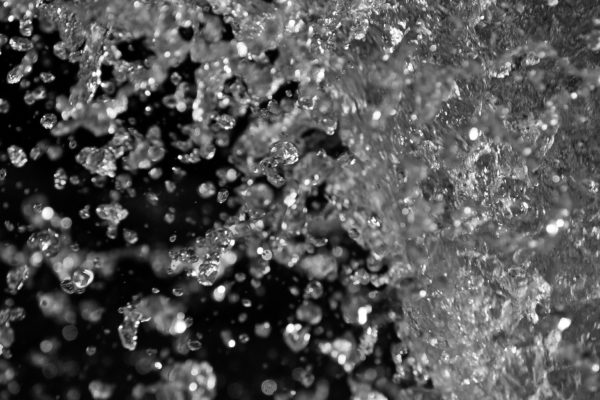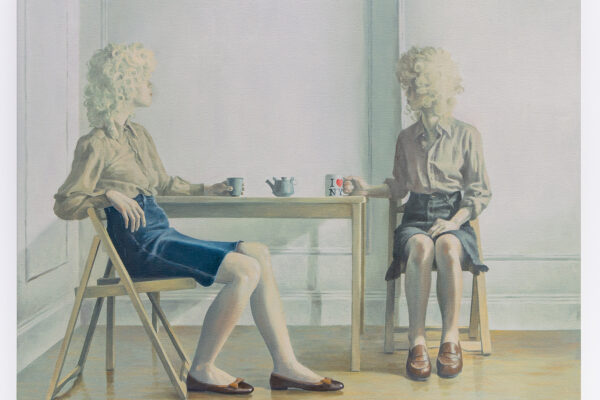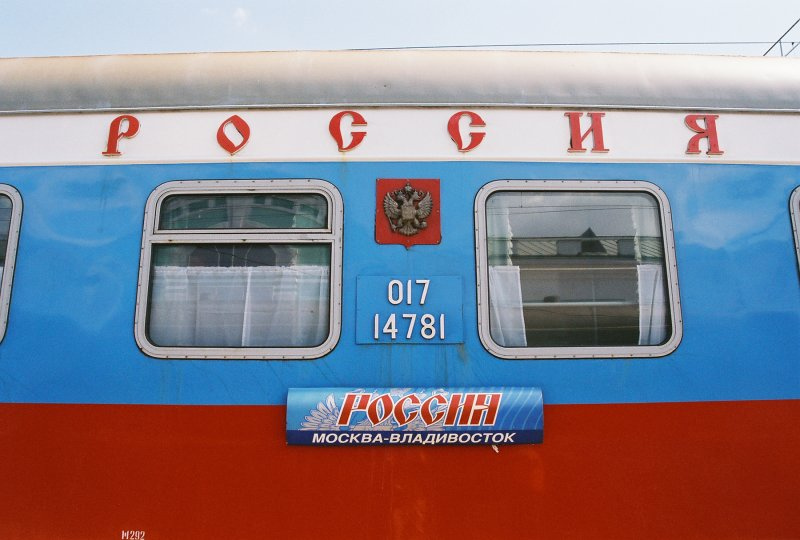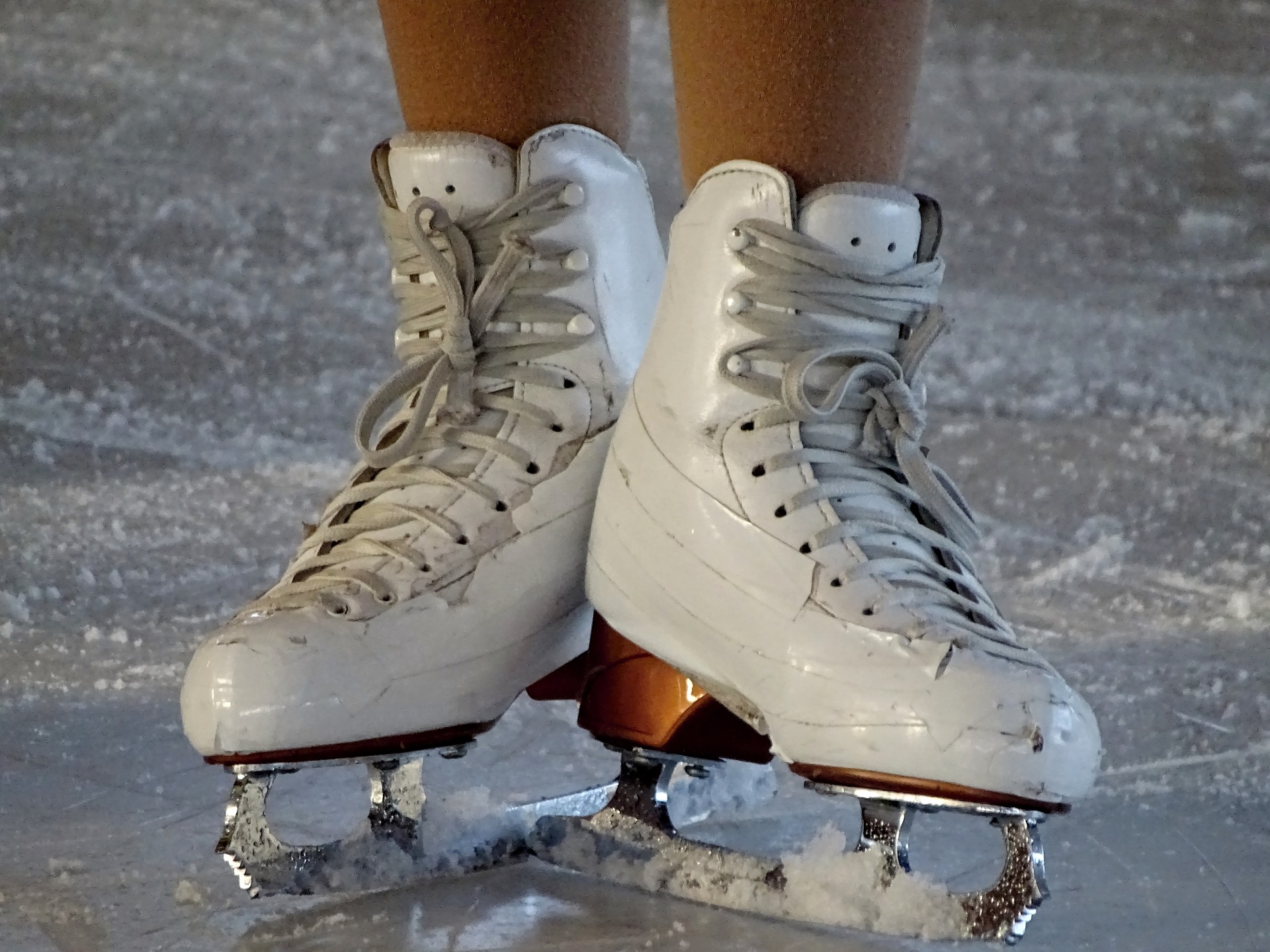By Andrew Reichard
April 15th—the morning of our protest on Pennsylvania Avenue. The day we risked injury from a government that responded to rage with derision. I hoped then, and privately, that I at least would always remember it, and the strangest thing is that I did remember. Even now it’s vivid. Not as the external tipping point I dared, in my innocence, to hope for, but still as a sort of totality of experience, if that makes sense. It was the kind of granular event that nevertheless encompassed everything that came before, while everything after is more or less a series of investigations on that moment’s implications.
That was just me, though. I knew even then, I think, that the drenchings had happened too often for this one to be outwardly momentous.
I’m not going to tell you what we were protesting aside from the fact that it mattered to us; it mattered to a lot of people. It matters still, but looking back now I don’t think that’s why we did it. Our signs and chants were nothing more than a kind of shell, refined to such slimness that to look at it we couldn’t quite tell if the furbish had revealed the brittle yolk inside, or else just our own reflections.
The sign I’d made on my boyfriend’s kitchen linoleum was made of poster board, purchased along with a set of colorful markers from Michaels, and we both knew it would dissolve within minutes if they turned the hoses on us. My message would wash down the grey surface of the poster into an indistinguishable run like the way chalk vanishes in a rainstorm. The point was that we were there, marching—our unarmored bodies the only real signs we needed.
On the day of the march we met up with a fluidity of others as we guided ourselves carefully down the streets. It was made to look like spontaneity, but it was carefully planned, our eyes fixed too sharply on the world of traffic signs and the way ahead. Men and women joined us from park benches and subway entrances, most of whom I didn’t know. We gathered like the last snowball of the season, preparing for melt. We all wore swimsuits under our bright clothes like we were going to the beach, except that some of us also wore parkas despite the city’s early April heat. Others had towels wrapped around their shoulders. They must have known those would soak, but I think they were for covering faces if the spray was too intense to bare.
I knew the water could hurt—scrape skin like road burn and leave purple bruises as if it had infiltrated the first layer of your body, leaving you water-logged and feeling disfigured. Some people ended up in hospitals. One man last week had lost both his eyes after taking a close hit full in the face.
We were prepared. Our bodies humming with that electric sensation you get along your scalp when the reality that faces you—that you face back—isn’t calm in its normality, but jagged and hair-raised. That’s how I tried to explain it to Devin when I took his hand. Mostly I just wanted to say: “Do you feel that, babe?” And he would say: “Yea, baby. Laura. I know.” That’s all he needed to say: “I know.”
But Devin was angry and cool in that way he had. When he was mad he went blank and cool, and he smirked a little: a really nasty smirk no one would ever mistake for a smile. And he couldn’t have been feeling what I was feeling. He wasn’t scared, or anyway wasn’t showing it. He said something grim and cynical, blank and cool. Something about spitting in reality’s face, or spitting in the President’s face—spitting out that gritty, undrinkable water the world had spat at him. He said it like a joke, but I didn’t hear exactly how it went because I was mostly listening to the rest of the group, which had grown to maybe a hundred people or so, and all of them chanting.
Signs were coming out of us all over, a flowering of indignation. Not hatred or madness, just anger. I saw banners held by two or three at once, and umbrellas with messages pasted in strips of colored duct tape, and posters like mine; and I started to feel a little less silly. Well, silly’s not the right word. I never felt silly about this. I believed in what I was saying and doing. I was what I was saying and doing, but I started to feel like I was a part of something sincere in a way that registered with more people than Devin and me. I picked up my feet a little more. I think we all started speeding up. Unconscious inertia. It was hard to tell how fast our feet were moving when our heads ran so quickly.
We’d both worn boots. Devin had on an old pair of Doc Martens that matched his anger, and I was sporting these stupid pine green rain boots because I didn’t have any other kind, and you didn’t wear clothes you cared about to something like this. Or maybe you did, and that was the point. Even so, these boots still made me look like I thought I was out here to stomp in puddles. I wanted to tell people—Devin, mostly—that I knew what I was getting into. That I’d volunteered to go out of my own free will. That despite my rain boots I knew I’d get wet.
It was hard to dash into something like this without knowing what could happen. Almost everyone’s mobiles were waterproof, scratchproof: damage-proof in a way our bodies weren’t. There was enough news coverage and DIY Internet footage of drenchings to spend an entire Saturday flipping through a trillion 5-minute clips of protesters getting themselves literally washed away from the White House or some other Hydrant Protected Location. You could find HPLs on any map now—color-coded—even the folded paper maps given to tourists; which meant that pretty much every monument, office, police department, school, and park was outlined in blue. Blue: the color we imagined water was, but that was wrong because everyone knew they should have been outlined in red.
To look at a map of D. C. with the HPL settings on you’d think you were seeing a hurricane or something. It was just like that—like weathering a bad storm. There was a constant vortex at our country’s capitol, and we were those who walked into it willingly. There was some power in the ability to provoke that storm, I thought. We could prod it with shouts and waved banners and we could even—if the Anti-Protest Center was especially reticent—resort to burning things. Though I hoped it didn’t come to something as vulgar, as primal, as fire.
As we came down 17th, passing the McDonald’s on the right, approaching the intersection where there was a guardhouse and cars were no longer allowed on Pennsylvania Avenue, I could see the driver’s expressions through their rolled up windows. These people knew where we were going; they’d seen the footage too, and they saw our risible umbrellas and our boots and our bikini straps. And some of them—not many, I don’t think, but some—seemed to be shaking their heads: No.
But we ignored them. We marched on, marched faster. Past runners in florescent shoes and men in business suits sipping at coffee under dripping noses and dispassionate eyes. Past cops who watched us while speaking into their voice sets. Past all that white-grey stone: the color of monuments.
We turned as one on to Pennsylvania, and I began to feel, though we’d only walked a dozen or so blocks, that I knew all these faces surrounding me. That we were coming up to some barrier in an eon-long peregrination and had simply been travelling so long we’d forgotten each other’s names.
To accommodate this idea, I said that it was like walking up to the walls of Jericho. (Though it actually felt like we’d never left Egypt.)
Devin flashed me that grin he kept behind his smirk. When I said wry things like that I sometimes felt like I was redeeming myself to him from some earlier failure of creativity or initiative or simple momentum. Like I’d stood in place too long, but now I was moving again, and he liked that.
“Washington D. C. was built on a swamp. Did you know that?” he said. He’d let go of my hand, and I wanted it back but didn’t dare say so. “That’s where this humidity comes from. We’re standing in a dried up swamp, and one day they’re going to drown the whole place again with their anti-protest hoses. Drown all of us with them, babe. Maybe that’s what it’ll take.”
I felt like laughing then. Felt like opening my mouth and just sort of screaming a little and maybe laughing.
We were slowing down. Had to. The White House’s North Lawn was just ahead to the right. The grass was this abominable green. Looked like they kept it constantly watered with the same hoses that washed away pests. When we were close enough to see the signs that read No Littering on Grass, I saw the first hydrant. It was one of those Triple-Barrage types that spun like a splash park amusement and hit like a tsunami, and it was painted this boisterous aqua-green like they’d made some half-hearted attempt at camouflage, and that was when I noticed my heart was pounding, really galloping.
When we got close enough the stationary hydrants lining the street were joined by inlaid hoses. It was powerful, I realized first-hand, the way they’d made those nozzles so that they would rise steadily out of pistons in the ground—steadily and silently the way I imagined hornets rising out of a kicked nest: smooth at first like they wanted to give these idiot trespassers a good look at their smoothness. And then the terrible swift sword, but not angry. The buzzing I heard was all inside my skull.
“Jesus, they look like guns,” said a woman standing next to me.
Others were already rooting themselves and shouting their protests at an assemblage of silent cameras, trying to have their say before the warning speakers on the gate drowned out our words. There were no personnel around, no police. I wondered whose ears we were shouting into.
The nozzles of the hoses did look like guns. Dear Lord, they did indeed. But they weren’t. No matter how violent we got, our government would never use deadly force on its citizens. We could never crack the marmoreal shell of their cavalier silence.
For a while, they just let us shout and mill about. I stopped cringing. I relaxed my wince. My adrenaline began to dilute. Then a runner came through, and we were blocking his path. He waved at us, made parting gestures, and when he was through and safe he said, “Fucking Drenchers!”
We all heard those words; it went through us like a ripple. He’d said nothing, really. A minor hex of discomfort. But it had been his manner: the way he dismissed us and our cause and our ability to speak and stay dry. I imagined I heard Devin’s knuckles crack inside his whitening fists, but it was only his face that had cracked. He opened his mouth and screamed filth at the runner’s back. Then he threw something. Not at the runner, but at one of the hose nozzles on the lawn’s black fence. Aimed it precisely and actually knocked the little aperture askew.
I hadn’t known he’d been carrying a brick. Something about his willingness or ability to carry weapons without my knowledge frightened me back a step. I thought: Oh no. That was all. Oh no.
The loudspeaker attached to the gate flared briefly with static, and a warning spewed out: “Violence will not be tolerated. Disperse immediately.”
It repeated itself: “Violence will not be tolerated. Disperse immediately.”
And we—I among them—shouted all the louder because of that automated voice’s arrogance, that mantra. We were Drenchers, weren’t we? Such had become our identity, no longer allowed to be heard speaking words with meanings. We were just Drenchers. Just a cause to their effect.
So drench us! The defiance was exhilarating even though I wasn’t sure then what it meant. Drench us!
They did. That was the most incredible thing about it: the total lack of warning. That was the aspect that video clips hadn’t prepared me for because cameras couldn’t capture that abrupt everywhereness of the water. But here I was at the beginning, dry and then suddenly soaked and off balance. Somehow wetter than I’d be had I been swimming.
All the nozzles spat on all at once. Like we were a house fire they had to subdue. The people in front were too close and were immediately thrown back, falling under the plume and opening the way for the second line of us.
I ducked and half collided with someone who cried out and fell hard against the pavement. By some shade of chance I was stumbling between two of the blasts. Had a chance to look up. One of the first things I noticed when I could see again were the rainbows; they sprayed the air with prismatic color, superimposed on the wild water. They mocked us and our flags and our colorful clothes and colorful bodies. I cried to see them, beckoned by the water: scornful ghosts drifting through the humidity. Not even intentional, just an effect of the spray.
We stood up to the barrage at first; just until the nozzles increased power and began to swivel, and we couldn’t dodge the worst. I saw the nozzle closest to me spin before the geyser hit me in the chest, knocked me back. Sharp pain in my breasts like I’d been kicked by a horse. Water filled my mouth and eyes. It swam up my nostrils and groped into my lungs when I tried to breathe. I threw my poster board sign in front of me like a Spartan shield, and the water cut it in half.
I couldn’t back up now because Devin was standing behind me, whooping into the face of it all. I tried to duck around him, pretend like I was just washing away, but I tripped. Fell hard against the concrete, breath going out of my body. I’d torn my jeans at both knees. My shirt was heavy over my bikini top which now seemed like a bad joke. The water felt like a giant hand was pressing me into the ground. Someone stepped on my leg. I was kicked, trampled, gargling filthy water. I groped about, half blind, my hands fishing up items as if from a pond: a boot, a cracked mobile phone, half a pair of glasses. A woman crawled past me: the one who’d said that about guns. Without thinking I reached out to her, and she tried to say something but water filled her mouth, and she choked. I saw, by her expression, that she was crying. I thought she might have been bleeding too, but it was difficult to tell since the water washed her wounds even as it caused them.
It’s not the water itself, but the humiliation, I thought, hot with rage. I finally stood using Devin’s pants and belt to pull myself up, not caring if he didn’t like that. Most of us were still standing I saw, though our signs and posters and defiant umbrellas were broken—had become trash that we tried to throw.
It probably hadn’t been going on for very long when it all stopped. The water dripped off in the nozzles like boys finishing a pee. The loud speaker, in an almost terrifying monotony of repetition said: “Protesting will not be tolerated. Disperse immediately.” Just like that, inflectionless.
I became aware of the sounds of the city: possessed by that almost evil—yes, evil, I say—monotony. As if none of this were happening right around the corner. Runners still ran in their florescent shoes, hopping to avoid new puddles. The monuments hadn’t moved, and the traffic and the businessmen were still moving. The police, I noticed, were no longer present, being no longer needed. We were dismissed. We were a problem that was contained and would, as the automation said, disperse.
It made me angry. It made all of us furious. And we did something about that fury.
The hoses began again. This time incrementally harder, heavier. Devin got it in the face and was thrown back, hitting his head on the pavement, hands fluttering to his eyes and eyes fluttering. The sight of him going down like that freed me from something. I set my face, as they say, like flint. I thought: Laura, stand your ground. You need to stand on this little square of soaking pavement until the sun dries it out, until the swamp dries out, until the monuments come down, until the sun sets in the east. But then I thought: My body is a shell. When it falls, it breaks.
I thought this because I had fallen. I don’t even remember how. It was all wild confusion, the water grimy with city muck and gutter-scented debris. Even here by the White House the streets were filthy. The water peeling the filth back like scabs. My skin burned; it shrieked. I shrieked.
Just like that there was no more ground to stand on. We all began to disperse as we had been told, holding each other up and running, backs bent and crouched, taking pieces of the road with us, buried in our knees and elbows and palms. There was nothing to fight. Nothing to hit with our fists or our bricks. I wondered—how could I not?—why we did it. Why anyone thought it was worth it to do anything other than keep both hands on the steering wheel and press softly on the gas when the light turned green.
As we pelted down side streets, me chasing Devin toward his little apartment—running because we weren’t sure how to walk yet—we passed another little company of the marginalized, the angry. A congregation of Drenchers holding fast around a police department. I saw the hoses as we passed: little laughing nozzles sparkling in the summer heat. And you know what was so strange about that moment? Really, I’m not even sure if I can articulate it. I wanted to join those people too. Yes, it would have hurt all over again, but the fact was that the hoses were too gentle. They weren’t a response to our anger. They weren’t indignant at our behavior or prodded or provoked. We wanted them to be. We wanted the hoses to be a retaliation instead of just an effect. We wanted them to commit to our grievances, to hit us (singing now) with their best shot.
We ran on that day, but Devin and I talked about joining other marches later. After we’d dried off a little, which took days, you know, to completely dry off from the experience, knowing that there were layers of dryness, and it would never evaporate absolutely. Even so, I wanted to be drenched again almost immediately. Now, as I wonder about this, I think it was that we came to be angry. That is, we came to be made angry. Instead of washing our anger away, the water only began to simmer under our skin. And because of that maybe the hoses did something to us no one really understood—baptized us right out of ourselves and into a place where we could see our own indignation shimmering all across the surface of their streets, captured there and waiting for us to return again. Every time we went out, became Drenchers, held up our signs and shouted our protests, we marched a little closer to this recognition.
Andrew Reichard grew up in Maryland where he frequented Washington D. C.’s many museums and historical sites. He now lives in Grands Rapids, MI where he works at an imprint of HarperCollins Publishers. He writes both fiction and poetry.



